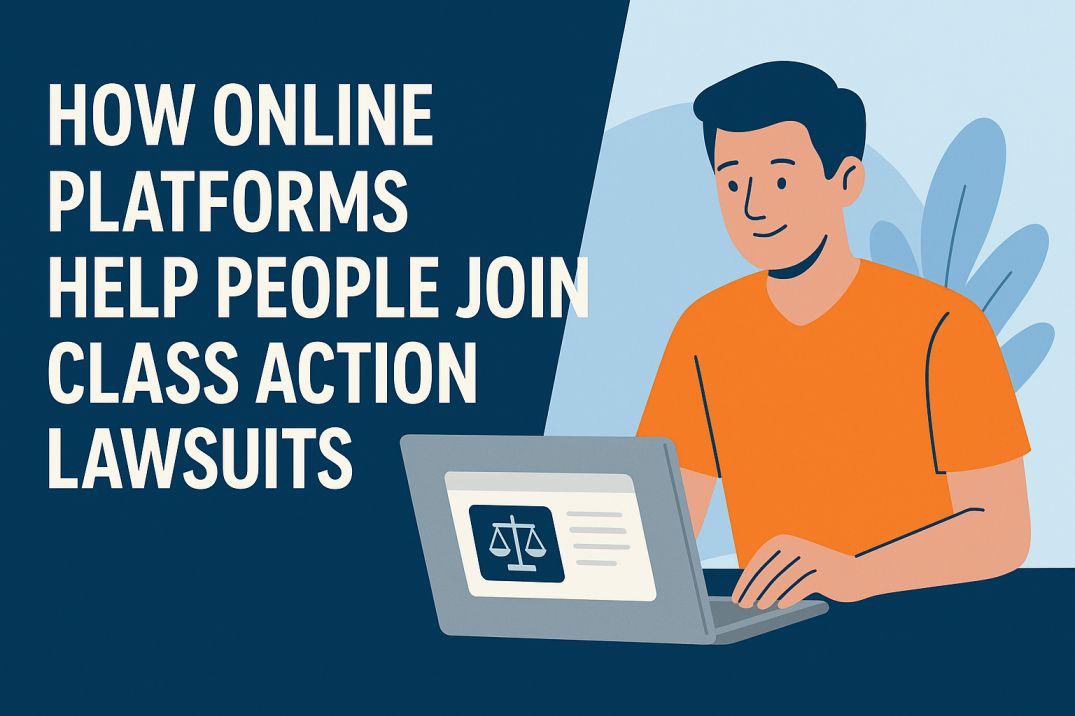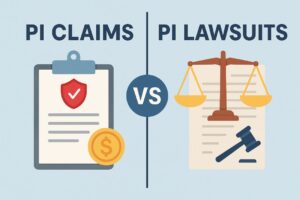Joining a class action lawsuit used to be hard. People had to search for a lawyer on their own. Then they had to visit a law office and explain their problem. That took time. It also cost money. Most didn’t know who to trust or what to do next.
Many gave up before they even started. Some didn’t realize they had a case. Others felt the process was too confusing or expensive. That left people without justice. Companies got away with bad behavior because victims stayed silent.
Now things have changed. The internet has made legal help easier to find. You don’t need to make phone calls or set appointments. You don’t need legal knowledge. You don’t need to drive across town. You just need internet access.
Online platforms make the process simple. You visit a trusted website. You check if the lawsuit applies to your situation. You fill out a form. That’s it. You can do everything from your phone or computer. The steps are clear. The language is simple. You stay informed without hassle.
These tools remove the barriers. They help more people stand up for their rights. They make justice possible for everyone—not just those who can afford it.
Websites Make Legal Help Easy
You don’t need to search the internet for hours. A site like LitigationConnect.com shows current lawsuits in one place. It lists open cases, explains who can join, and provides clear forms. You don’t need to meet a lawyer first. These tools guide you step by step.
Some websites even connect you directly to class action law firms. You get help fast without confusion.
News Travels Fast Online
In the past, a lawsuit filed in a small town often stayed local. Few people heard about it. Most victims never knew they could join. The story died quietly. Justice stayed limited to a few.
Now everything moves faster. The internet changed how news spreads. One post on Facebook or a short tweet can reach thousands in seconds. A blog or online article can inform people across states or even countries. A video clip can go viral overnight.
Legal websites also share updates. They list new cases and tell users how to join. People no longer need to live nearby. They don’t need to watch the local news. They just need to scroll through social media or check their email.
This speed helps lawsuits grow. More people see the issue. More victims step forward. The case becomes stronger. Judges and companies pay attention when large groups speak out.
The internet removes limits. It connects people who once stayed silent. It gives them a chance to act. It turns local complaints into national action.
Legal Terms Become Easy to Understand
Many avoid lawsuits because they sound too complicated. Legal words confuse people. Online platforms fix that. They use plain language. They post short guides, video explainers, and common questions.
You learn what the lawsuit covers. You see if you qualify. You understand the steps before you act. No need to feel lost.
Community Builds Strength
Class action lawsuits bring people together. Everyone shares a common problem. That creates unity. You don’t feel alone anymore. Other people understand what you’re going through.
Websites and forums let people ask questions and share stories. Comments and groups offer support. This builds trust. It gives people courage. A united group always makes a stronger case.
Updates Keep You Informed
Some lawsuits take months or years. People wonder what’s happening. Online platforms solve this. They share updates as soon as things change. You find out about court decisions, deadlines, or settlements right away.
You stay informed. You stay involved. That builds confidence and reduces stress.
People Take Action Faster
Most people didn’t know they had the right to fight back. They saw a problem but felt helpless. They thought only lawyers could fix it. That belief kept many silent. Companies took advantage of that silence.
Now things are different. Online tools give people a way to respond. You don’t need legal training. You don’t need to understand complicated rules. You don’t need to pay upfront or wait in line at a law office.
You visit a trusted website. You read about the case. You check if it matches your experience. You fill out a short form. That’s all it takes. No stress. No confusion. No delays.
This speed matters. It helps people speak up before deadlines pass. It brings in more voices. It builds stronger cases. It also sends a message—people are watching, and they won’t stay quiet.
These websites put power in your hands. They remove fear. They remove doubt. They show that legal action is possible. You see a problem. You take action. Justice starts with that one step.
Final Thoughts
Online platforms give people control. They remove the confusion that used to stop many from joining a class action. You don’t need a background in law. You don’t need to spend hours searching. These websites bring everything to one place.
They make it easier to join. They show you what the lawsuit is about. They tell you who qualifies. They explain every step. You get the facts. You see the deadlines. You follow the case without stress.
They also spread awareness. People who once stayed silent now speak up. A post online reaches more people than a lawyer’s office ever could. That helps cases grow stronger. It brings more people together.
Online platforms keep you updated. You don’t wait in the dark. You see real-time updates about the case. You know what’s happening. That builds trust and keeps people involved.
Most of all, these tools create unity. You are not the only one. Others have faced the same issue. Together, you are stronger. A single voice may be easy to ignore. A group of voices demands attention.
If you believe a lawsuit might involve you, visit a site like LitigationConnect. Look through the list. See if your experience matches. Take action if it does. You are not alone. You have the tools. You have the right to be heard.
Muhammad Suleman Ahmad is a content writer covering lawsuits, legal explainers, and court-related topics for LawsuitDeck.com. His work is structured for clarity and general understanding.


